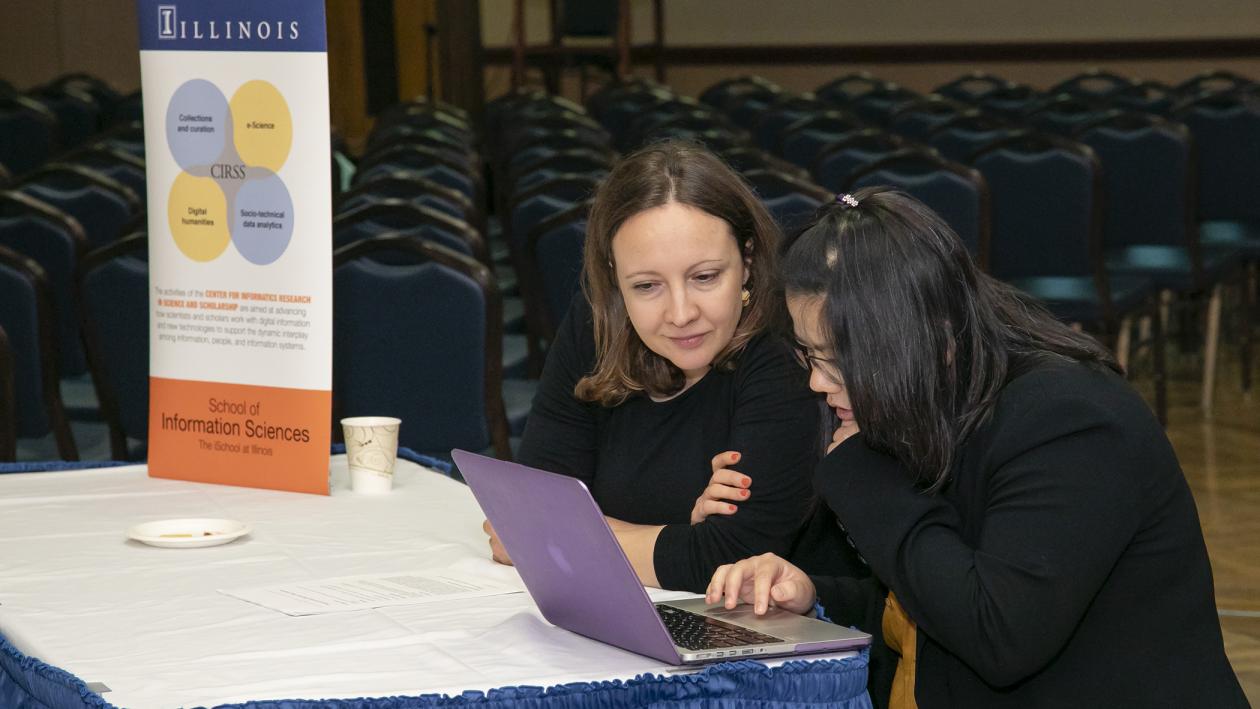Information Sciences
Information Science focuses on how people use technology to better organize, analyze, and manage information, as well as how society and individuals relate to information. In our program, you’ll learn programming, database concepts, and research methods. You’ll also explore broader social issues such as information equity and ethics. Our program will prepare you to become a specialist in the information sciences who understands the human perspective, social context, and policy implications of information in society.
Understand the critical, social, and cultural contexts of information science.
Understand the impact of data in governance, business, culture to educate citizenry in a democracy, and inform policy.
Understand the data life cycle and be able to analyze, interpret, explain, qualify, and contextualize data at scale.
Understand the principles of information architecture and human-centered design, and be able to build useful and usable information systems
Understand the power of narrative in human society, gain familiarity with storytelling tools and techniques, with professional applications in business, publishing, youth services, curation and the game industry.
Understand the role of cultural heritage and other memory institutions in our society and become familiar with the practices and professions associated with the collection, organization, preservation, curation and dissemination of information.
- IS 202/INFO 202: Social Aspects Info Tech
- IS 101: Introduction to Information Sciences
- IS 107/STAT 107: Data Science Discovery
- IS 226: Introduction to HCI
- IS 229: Web Design Fundamentals
- IS 266/MACS 266: Community Innovation
- IS 308: Race, Gender, and Information Technology
- IS 265/MACS 265: Innovation Illinois: From Accessible Design to Supercomputing Cultures
Students should consult with an academic advisor regarding course selection prior to the advanced registration period.
- Apply various approaches to research in the information sciences, including social science methods, data and text mining, digital humanities, historical approaches, and others
- Apply critical analytical skills to information issues
- Understand relationships among people, information, and technology
- Understand the history, theory, philosophy and methodologies of the field of information sciences
- Understand fundamental mathematical and programming tools for solving problems of information modeling, expression, and transformation
- Content strategist
- Data analyst
- Database manager
- Information governance analyst
- Information technology analyst
- Market research analyst
- Product manager
- Technology support specialist
- User experience designer
- Web content analyst
- Participating in undergraduate research
- Applying for a study abroad experience
- Utilizing resources of The Career Center
- Joining a Registered Student Organization (RSO) related to this major, such as:
- Data Science Club
- Sports Analytics Society
- Design Innovation Illinois
- Association of Data Science and Analytics
There are several professional organizations dedicated to Information Science. Their websites might be able to provide a glimpse in the world of Information Science. These organizations include:
- iSchools - https://www.ischools.org/
- Association for Information Science and Technology (ASIS&T) - https://www.asist.org/
- Association for Computing Machinery - https://www.acm.org/


